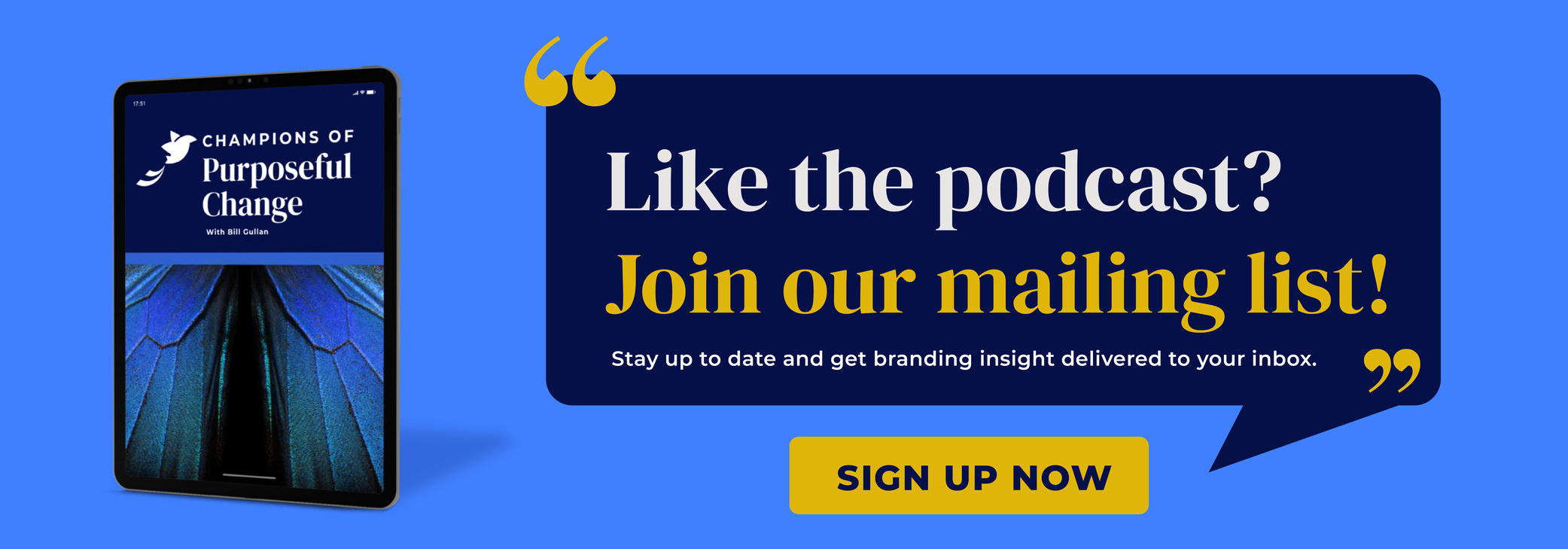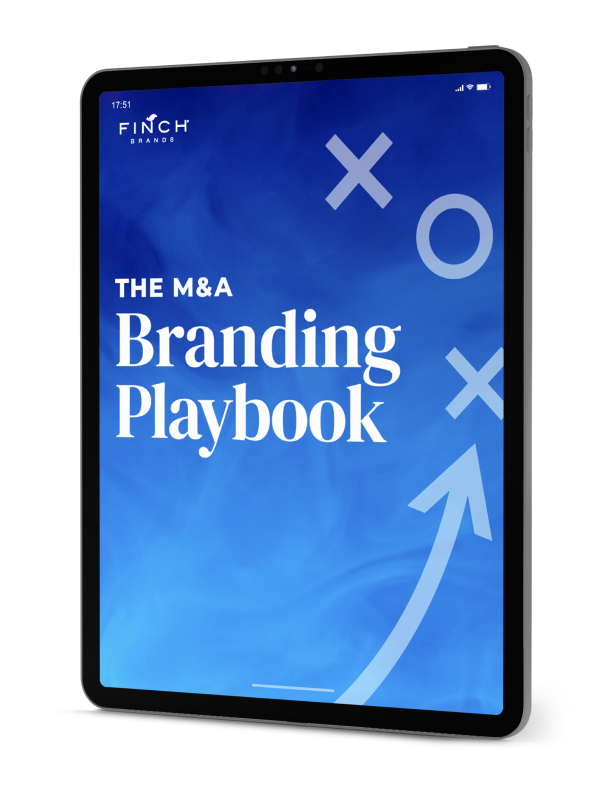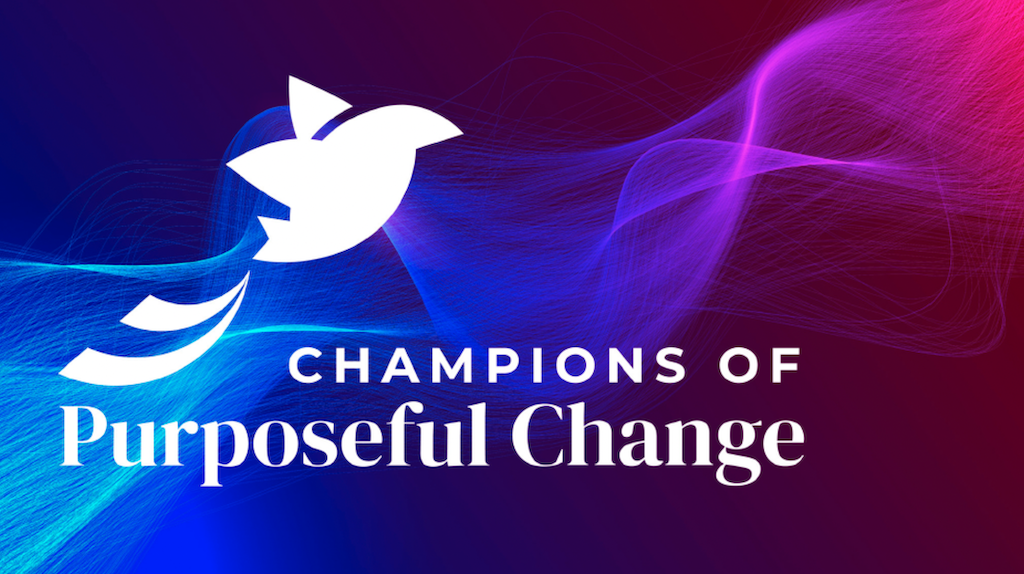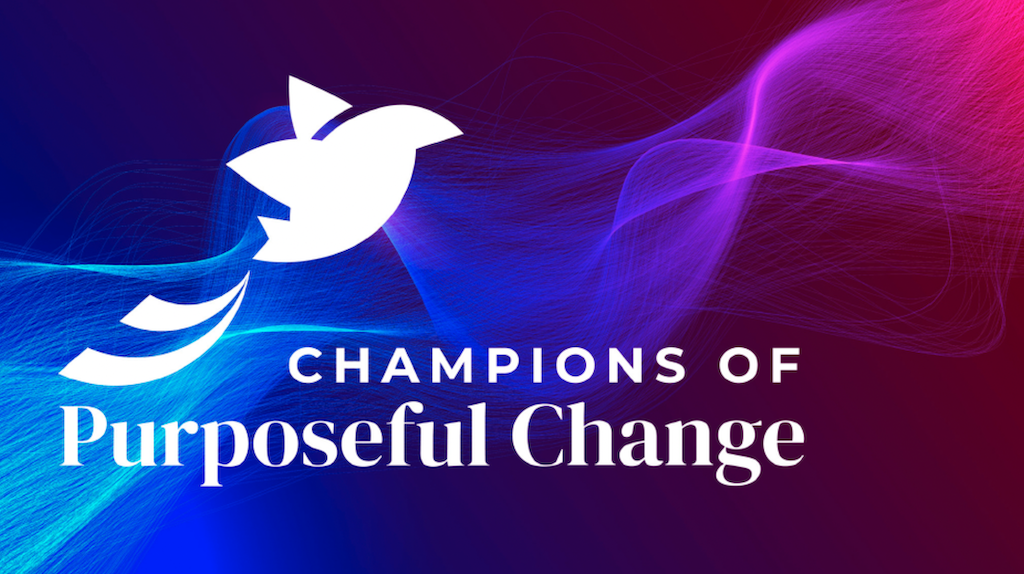Breaking In & Rising on Top: The Cannabis Industry with Keith Cooper, CEO of Revolutionary Clinics
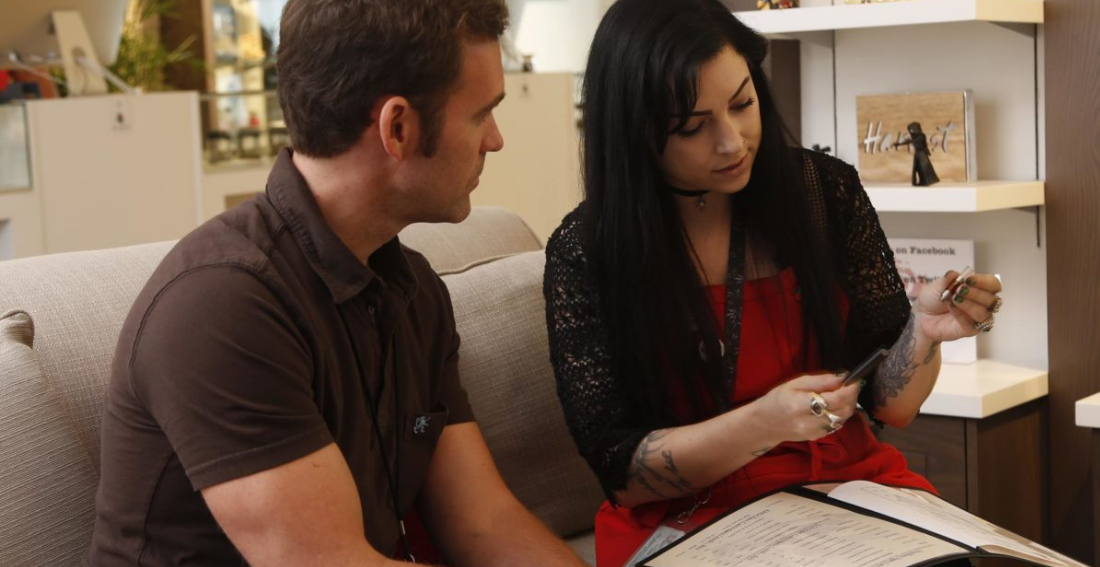
Keith Cooper, CEO of Revolutionary Clinics joins us today on Real-World Branding. With a degree from Harvard Business School and 30 years of experience, Keith dove into the unknown in sight of a new business venture in the cannabis industry. Revolutionary Clinics is a vertically integrated marijuana dispensary and growth facility. If you like our podcast, please subscribe and leave us a rating!
Podcast: Download Subscribe: iTunes | RSS Transcription:
Bill Gullan: Greetings one and all. This is Real-World Branding. I’m Bill Gullan, President of Finch Brands, a premiere boutique brand consultancy. Thank you for joining us. This is a great one, and it’s great for a variety of reasons. The guest is of extremely high quality, Keith is. But it’s also just a category that, to me, is sort of endlessly fascinating, and that is the emerging category of cannabis.
Bill: Keith’s firm, and he’s the CEO at Revolutionary Clinics, is a pioneer in Massachusetts in the medical side of this, but I think he and we and probably all of us see a future of sort of broader legal opportunities for adults to engage with cannabis. And all that they’re doing in the medical realm will really translate in scale into broader realms, again, once the regulatory impacts are clear. And it’s hard to predict that, but Keith will tell us how he’s approaching building a cannabis business. So enjoy Keith Cooper, from Revolutionary Clinics.
Bill: Let’s welcome to Real-World Branding the CEO of Revolutionary Clinics, a fascinating business in a very explosively growing space. We have Keith Cooper, who’s the CEO, joining us. Keith, thanks for your time.
Keith Cooper: My pleasure, happy to be here.
Bill: Excellent. And let’s start as we typically do, and I know that your journey is a really fascinating one on a couple different levels. If you could take us through kind of the highlights of your career, maybe starting with how you started out, and some of the twists and turns that have led you to where you are.
Keith: Sure. So, I started out on a pretty traditional task after Harvard Business School, joined the Boston Consulting Group and spent a number of years there exploring different industries and trying to help companies figure out their strategic moats, and how to compete more effectively.
Keith: And I made a big decision at one point, when I was up for partner, and had to make a decision as to whether I want to commit four, five, six years, or forever, or hop off and try something else. And so I decided, at that point, to try to go and become an entrepreneur. And so, I made that decision with what was then my fiancé, and I’ve never looked back.
Keith: The first company I got involved with was something that I had focused on at BCG, so I had some experience as to the industry structure and players, and so forth. And we ended up building a really great company over a three and a half year period, zero to $60 million in revenue, just a couple hundred employees.
Keith: So, had a good swing at the first ball that was thrown up for me, and that made it easier to continue in that path. I did another company called FaxNet with a couple of partners. Raised venture capital, grew that up over three and a half years for $20 million in, and sold it for a couple hundred million dollars. That gave me even more sort of powder and confidence to continue down that path.
Keith: And so I got into the internet, and I took over a company that was in web analytics, and we grew that company up and sold it to Microsoft. I joined Carbonite Online Backup early on, and David Friend, who’s the founder, Jeff Flowers, and I were the leadership team. And that company grew to over a million paying subscribers for online backup of computer data, and then mobile devices, and is now a public company, which is doing quite well.
Bill: Right.
Keith: So I’ve done one or two other things, but what happened was, two years ago, I sold my last company called Constant Therapy to a private equity firm. And I was thinking I might be done, and start to do board work and investing on my own. And, as luck would have it, I went to a cocktail party at a golf club and somebody said, “Hey, I heard you were free. Can I show you a business plan?”
Keith: And that was two years ago. I took a look at the plan, it was a cannabis business plan, and I thought it was fascinating. I wasn’t a cannabis guy, don’t mean to say that I never tried it, I did. But didn’t really know much about the industry, didn’t know about the applications, didn’t know about the size and scope and direction of what was happening.
Keith: So I got pretty pumped about all of that, because having been an entrepreneur now for 30 years, I look for those opportunities. Industries that are going through change, either regulatory or technology, that are large, that have potential for scale. And boy, didn’t this have all of that. So I looked at the industry, I got very excited about it, and I didn’t end up investing in the plan that I was presented, but I found out enough about the industry to want to get involved, and I took over as CEO of Revolutionary Clinics a year and a half ago.
Bill: Wow. What a story. Could you tell us a little bit about sort of what Revolutionary Clinics does? And obviously, you’re in a … One of the interesting things about cannabis is how sort of very regime is, at this point. Obviously, you’re in Massachusetts, which is, in some ways, an early adopter or an early mover in this category, but tell us a little bit about the business.
Keith: Yeah, so Revolutionary Clinics is a vertically integrated, today, marijuana dispensary and growth facility. So we have a large growth setup in Pittsburgh, Massachusetts, 250,000 square feet. We acquired the building. It was the old Cole Haan shoe factory, so we took a vacant historic building and we put $50 million into it, and turned it into one of the larger growth facilities in the state.
Keith: We have a processing lab there that extracts the oils for cartridges, and other concentrates. And we have a large commercial kitchen, which takes the distillate from those oils and infuses it into chocolate bars, and gummies, and peanut butter, and Nutella, you name it, as well as balms, and salves, and massage oils, and tinctures, and sprays. There’s all sorts of different ways of doing it.
Keith: So, we have the growth facility, the processing lab, the kitchen. Now, we have three dispensaries in Massachusetts. Two in Cambridge, and one in Somerville, and those dispensaries are retail stores, today, medical, where you need a medical card to get in. We have over 9,000 patients that we serve on a regular basis, so we’ve been very happy and successful to participate in that part of the business.
Keith: We are very anxious to get into the adult use side of the business. Massachusetts voted a couple years ago to allow that to happen. The Cannabis Control Commission has been rolling that out little by little, but we’re one of, I think, 30 companies in the industry today, in Massachusetts. So it’s still relatively new, relatively small. I think there’s 50 stores open in total. And we’re really, really excited to be part of this new industry, and new in this state especially.
Bill: Yeah, no, amazing. And there’s so much here. Would you say that the soul, and the answer is probably all of the above, but the company does so much. I mean, it’s a hospitality business. It’s a retailer. It’s a product developer. It’s a therapeutics company, as well. What is the soul of this place? When you think about, God, there’s so many different directions here, how do you even begin to attack something like this?
Keith: Yeah, so, it’s even more than that. Not to complicate things, but we’re a construction company today, construction with brick and mortar retail. We have home delivery. We’re very, very regulated, as you mentioned earlier, so that has it’s unique challenges associated with it. So it’s a number of what I’ll call very high-data businesses, things that can go very right and very wrong on a daily basis.
Keith: But the heart and soul of the business, and the reason we chose Revolutionary Clinics as our brand, is that we wanted to be pioneers. And we wanted to be the revolutionaries in Massachusetts that took this product, which has been around, as everybody knows, for thousands of years, but has been sort of demonized and illegal for the last 80, and to bring it back to life and to normalize it, and to make sure the people understood that it’s not a bad thing. That its applications for medicinal value are well known by pretty much everybody in the medical community as well as everybody that’s used it over the decades to relieve anxiety, or depression, or to help them sleep, or for pain relief. All sorts of multi-billion dollar pharmaceutical applications.
Keith: So, the Revolutionary brand is really what we tried to bring to the floor, to challenge the norms, to challenge the stigmas. To take normal people and to help them understand that this is not a bad thing. This is something that is a beautiful thing. Not just for medicinal purposes, either. When you look at the adult use, it’s a really fabulous and magical application. In my view, it’s better than alcohol or fine wine, in the right dose and the right applications, for stress relief and just to relax and to have fun. And it doesn’t have to put you on your back and make you all sorts of crazy and giddy. You can do that if you want to, but it can be, in the right dosage, very, very normalized, if you will, in this industry.
Keith: So, we try to help people to bust through those stigmas and to understand that this is going to be a normal thing in the near future.
Bill: Sure. No doubt. And it certainly seems to be where the world is going. To that end, there are certain stereotypes, even those that aren’t negative, associated with cannabis. You all have on your website, for example, you’ve chosen to highlight members of the team, and sort of the roles they play, and how they view the world.
Bill: On one hand, you can see weed wizard Ari on the home page of the website, obviously engaged in the category. How do you kind of balance the personality of the brand in a way that modulates correctly, I guess, given all the perceptions that folks may have out there?
Keith: Yeah. I’d say, to sum it up, in my experience, cannabis makes you a little bit more understanding, a little bit more curious, and a little bit more loving. And there’s nothing wrong with that. And so, what we try to do in those caricatures of those individuals, and very much part of our culture and our brand is our people, because at the end of the day, the flower that’s grown, you know, there’s good and there’s better. But it will eventually be a commodity.
Keith: There’s certainly different, and we’ll talk more about this, I’m sure, different applications, different packaging, different formulations which we are going at to be unique, but right now, our brand is our service, is our people, is our clarity, is our training, is our education. And so, what we try to do with those superhero caricatures is bring that to light.
Keith: That, when you’re coming to our store, whether you’re a medical patient or, eventually, an adult use patient, you’re going to come into a warm place that’s welcoming, that you don’t have to be embarrassed asking questions, that you can feel comfortable in. You can sit down and you can read, you can sit with somebody and learn, and our people are trained very well, and part of who we attract are people that want to deal in that way with their clientele.
Keith: So, that’s a big part of our brand, also, is our people and the education and the space to be yourself when you come into our store.
Bill: Right. Super cool. This may not be the right phrase for it, but the traditional phrase, “Product assortment.” We look at what you all have on the product level, you mentioned edibles and some just other product formats. Then, also, on the site, it’s interesting. There’s almost sort of different needs or moods. You have relaxation, and happiness, and et cetera. Talk a little bit about the sort of product development philosophy here.
Bill: You talked about formats as well as this other sort of method of helping people pick the right thing for them, and then you see there’s educational content about seminars for people with epilepsy, and how cannabis can help. As you all think about product, and kind of RND, as well as almost merchandising, this is, again, uncharted territory, compared to the dealer behind the gym back in high school. It’s a totally different world. How do you see the sort of product development imperative?
Keith: Sure. So, the declarant actually has over 140 cannabinoids. We all know about THC, we all know, because of the more recent viral nature of CBD, which is the non-hallucinogenic common cannabinoid in the plant. There’s also a lot of other cannabinoids that have very specific effects, and when extracted and combined with non-cannabinoids, with nutraceuticals, or things like that, you can create sensations that are more specific and more intense than just the combination of all of those.
Keith: So, if you want to go to sleep, you really don’t want something that’s going to get you, even though you might be happy, you don’t want something that’s going to get you up and want to get you chatting with people and laughing and giggling. You want something that’s going to cool you down, calm you out, and close your eyes and have a nice, soothing sleep.
Keith: So there’s a cannabinoid called CBN, which is degraded THC, degraded not in an unfavorable way, but degraded in a chemical way, that creates this sense of calm, and it’s incredibly effective. So, when we have a product that we want to be able to sell to somebody that wants to sleep, we want to be very specific. We want to call it fade, and we want to make sure it has a high percentage of CBN, and we want to make sure people understand exactly what it is and what it does.
Keith: So, as I look at it, again, part of not being a cannabis guy when I came into this business, and what’s been helpful, is I look at the names of the cannabis, it’s gorilla glue, it’s tang tang, and it’s yellow skunk, and I look at that and I go, “What does that even mean?” And people who’ve been smoking it for 20 years, they will know if they’re up on it. But 90% of the population doesn’t know what that means.
Keith: So we’re trying to demystify that, and we’ve tried to put things in place that exemplify what the effect is going to be, because at the end of the day, that’s sort of what you’re buying, right? You’re buying an effect, and if you can get as specific as possible, you’re going to be more successful in being able to brand that and label that in a way that people understand.
Keith: Just like the best retailers do on the shelf. If you want to go to sleep, there’s ZzzQuil. What a great brand. ZzzQuil, right? And so, we have products that we’re focusing on with high CBN content that we want you to understand will do the exact same thing, but without the calories, without the narcotics, without the side effects, without the icky feeling you might have in the morning. And so, that’s the idea behind this. Make it effect-specific, make it as clear as possible, demystify it, and combine different elements of both cannabinoids and non-cannabinoids to be effect-specific for the user.
Bill: Right. No, super cool. You talked about the desire in the future to get into the sort of legal adult use market beyond just medical. I think most of us, I certainly, anticipate the wide legality of that, but I guess it’s going to happen jurisdiction by jurisdiction. What will be interesting in that market, and maybe we make an analogy that doesn’t quite hold, to gaming.
Bill: You see legal gaming, and you certainly see the gaming operators that exist and have existed in Vegas and elsewhere, who are going to certainly get their crack, but one of the questions that’s interesting is, who are the brands that are going to emerge in this category? And do you have any sense, or what does it keep you up at night, when it comes to, all right, let’s assume that adult use is legal. Do pharmacies jump in? Do traditional consumer brand CBG companies jump in? The marketplace is going to be a wild west to a certain degree. How do you sort of see the future to the degree that you can plan against it? How do you think about what happens when the harness has come off?
Keith: Yeah, so, it’s a very, very hard business to forecast and predict by way of timing of regulations. That’s been, I think, one of my bigger challenges as CEO of this company. I missed every forecast I put out there, because I thought we were going to be recreational in July of 2017. I’m sorry, 2018. And then it was December, and now it’s the spring, and we’re not. And so, it’s been really, really hard to predict.
Keith: And when you look at federal regulations, it’s even harder. Because, number one, it’s hard to get things changed that have been in place for so long. But the timing and predictions are hard. I think that the first things they’re going to do is to try to solve some of the problems that the federal illegality has created, like banking difficulties, and having states be nervous that the feds are going to come in and multi with their own state-legalized businesses.
Keith: So I don’t think there’s going to be dramatic changes yet. And because of that, I think that’s probably six or seven years away from what I’ll call broad federal legalization, where you can have inter-state commerce, and you can grow in California and sell that product in Massachusetts. What that means for us today is that we are fifty islands. Each state has their own rules, regulations, you cannot bring the product across state lines.
Keith: So, it’s hard for brands to get scale and notoriety, because in each state, for example, let’s say that you have the Coca Cola of cannabis in California. In order for that company that owns that brand and has come up with that formulation to come to Massachusetts, they have to come and they have to either get licensed, then go through this multi-year process, just to get set up in a single state. Or, they have to partner with somebody that’s already done that, and had a licensing agreement, and so forth.
Keith: So, it’s harder than average, and therefore, it’s going to be slower than normal to get brands that are national. However, if you look north of the border, in Canada, where it is federally legal, you can see the start of what’s going to be happening down here, again, in five, six, seven years.
Keith: You do have the retailers like the CVS‘s of the world getting involved. You do have big alcohol getting involved, constellation brands investing $5 billion in canopy. You do have big tobacco getting into the business. You do have big pharma getting into the business, has an investment up in Canada.
Keith: So we’re really seeing the future north of the border, but until that legality across state lines is closer up, until it’s two years away, those big players are not going to get heavily involved south of the border, in the States. There are brands that are making their ways across state lines, one at a time, but again, it’s slower than normal industries, if you will.
Bill: Keith, we lost you. Yeah, sorry, we lost you for a second. Now you’re back. Now you’re back. You can go ahead, we’ll edit out the silence, but you were making a point about some evidence of brands crossing the border, and on a smaller scale, I guess.
Bill: But I guess the benefit of this for you all, in terms of what that runway is, even though it’s uncertain is an opportunity to perfect the model, an opportunity to really establish some preference in localized markets, and maybe build, at least, a playbook for growth once the floodgates open.
Keith: Yeah. Really well put, there. We have our own Revolutionary Clinics brands that are on our shelves. We have another half a dozen brands which are not Revolutionary Clinics for that exact same purpose. We have Topicas for our salves and balms. We have IM Edibles as a brand for all of our marijuana infused products, and so forth. And the reason we do that is so that we can offer those products to other retailers without them feeling like they’re selling the competitor’s products, right?
Keith: So it is a smaller version of what we will be doing nationally, in Massachusetts. And it does give us a chance to experiment, and it does give us an opportunity to build a multi-hundred million dollar business here while we’re waiting to expand into different states.
Keith: There is quite a bit of action in companies that are consolidating multiple states right now, but again, it’s hard to scale the businesses, because you have to do every single thing in every single state. You can’t have, again, one huge operation in Michigan that’s going to do everything for the entire country.
Bill: Sure, right, makes sense. God, I could go on all day and all night talking about this. It’s so fascinating, and for someone who’s had the career experiences that you’ve had across consulting, and obviously, executive management in tech and other areas, functionally, what sort of lights you up about this that’s … Unintended bad pun, I guess, but when it comes to sort of a functional, I know that the pioneering spirit of the business is appealing to you, but there’s so much that goes into this.
Bill: Where do you find that, sort of, you’re most engaged, and spending most of your time these days as you build Revolutionary?
Keith: Yeah, so, it’s evolved. It started at the patient level. Very, very quickly, because we’re a medical company, I was talking with and experiencing the benefits of the medicine on so many different people’s lives, and it is unbelievably compelling. You cannot help, when you sit with these people that have been in chronic pain and were addicted to opioids, who found cannabis and it’s changed their lives. They’re getting the same benefit of pain relief without any of the side effects and any of the addiction that they experienced.
Keith: And I hear these stories every single day, from people that have been having seizures, and have tried every different medication, to people that were in the Boston marathon bombing incident who were given one opioid and then that created something, some other problem with their body, so they were given another drug to deal with that, and when that created another side effect, they were given another drug to deal with that.
Keith: And we have some really fabulous patients that have shared their stories with us, so it’s hard, and veterans, I just came from a veteran’s statehouse where we launched an alternative veteran’s care organization, to help research the effects and the benefits of cannabis for veterans specifically. Because today, because of their, obviously, federally mandated insurance programs and medical care, they don’t allow cannabis. And these veterans, many of whom get hooked on opioids, and then they stop giving them opioids because they’re hooked, and they end up on the streets and in trouble.
Keith: So, anyway, that was the start of my really getting passionate about this business. And I’m still extraordinarily, and will always be, passionate about that business. However, I will tell you, the future of this business is people like me. I’m 58 years old today, by the way.
Bill: Congrats, happy birthday.
Keith: Yeah, thank you. And again, I experimented with cannabis like most people do, in high school and college, but I never really found it to be very compelling for me. And it is extraordinarily compelling. And so, people like me, people like my mom, who have salves and balms to help her aching hands, and to help her get to sleep, and this helps with the libido, and it helps with the calming down after a long day. I think the big future market is people that aren’t using cannabis today and haven’t been big cannabis users.
Keith: That’s most exciting to me, because that’s breaking into a large category of untapped demand with products that, again, our effort to normalize and to demystify this, is going to be extremely compelling for that group.
Bill: No doubt. And we’re almost at the end of the time that we promised, and we’re so grateful for your insight. As someone who’s taken a, in some ways, at least early, as you said, a traditional path from Harvard and an MBA into BCG, and then various tech businesses, all of which were successful in different ways, and now you’ve taken this turn, and you can hear the passion in your voice, and you can just see the power of what you’re building.
Bill: Any words of wisdom for those who’ve been inspired by your career path? Either words that you sort of live by professionally, or things that folks who are just starting out may want to think about as they begin to take their own journey?
Keith: Yeah, I would say that one consistent theme that I’ve experienced and that I talk about company to company, industry to industry, is the only thing I’m extremely positive about, or certain about, is that the business plan that I write is not going to happen. That’s the only thing I’m sure of. And so, with that, because every single business I’ve been a part of, we’ve had to pivot in some way, shape, or form, and if we didn’t, we would’ve failed. Every single one of them. You never hit it square on.
Keith: So, you have to be prepared to be flexible. You have to be prepared to pivot. You have to be okay with that, even though at times it’s uncomfortable, and might be distressing when you’re running low on cash, and suddenly you find out your business model’s off, and you have to rethink the category that you’re in. So I think that’s one big theme. You have to be more of a broken field runner than a fullback, if you will, to use a football analogy.
Keith: And if you can sort of go in with that understanding, you’ll be more prepared, better prepared, I think, when those things happen. To sit back and say, “Okay, there’s good stuff here, I know there’s good stuff here. We just have to do it a little bit differently.” Rather than saying, “Whoops, we missed, let’s go someplace else.”
Bill: Right, right, makes sense. And a great way to end it. We’re incredibly grateful for the time you spent with us. We can’t wait to watch what happens with Revolutionary Clinics as well as just this really big … There’s a public policy side to this, there’s a health and sort of justice side of this. There’s obviously a commercial side of this. And to be early to it and have an ability to shape it, what a wonderful thing. And we’re grateful for your time, Keith. Thank you.
Keith: Thanks so much. Really appreciate it.
Bill: Keith is not only a tremendous guest, and is building a really cool company, but he’s a boon to this industry. Someone who came through Harvard undergrad, and then his MBA, came through management consulting in BCG, had the career that he’s had across technology companies, each one more successful than the last, successful exits, this guy knows how to build a business. And to have someone of his caliber this passionate about the cannabis, not only the opportunity but sort of the righteousness of the cause, the help that it provides to people is not only a force multiplier for Revolutionary Clinics, but also for the category as a whole.
Bill: So we’re grateful to Keith for his time and his insight. Terrific guest. Three ways, as always, to help us at Real-World Branding. The first is to rate us. Give us a rating in the app store of your choice, or the podcaster of your choice. Five stars. Make it happen. Click subscribe. You won’t miss a single one of these. We’re doing them every other week, we’re in a nice rhythm.
Bill: We’ve actually talked internally about doing them a little bit more frequently and a little differently. We haven’t decided yet, but at the very least, we’ll have interviews every other week with brand and business builders from across the world of commerce, and as well as the nonprofit sectors, into which Keith fits.
Bill: And then lastly, let’s keep this dialogue going on Twitter @BillGullan or @FinchBrands. Love ideas for future guests, future topics. Certainly, love feedback, too, and we’re now from the cradle of Liberty which is now Bryce Harper town. We’ll sign off from here.
